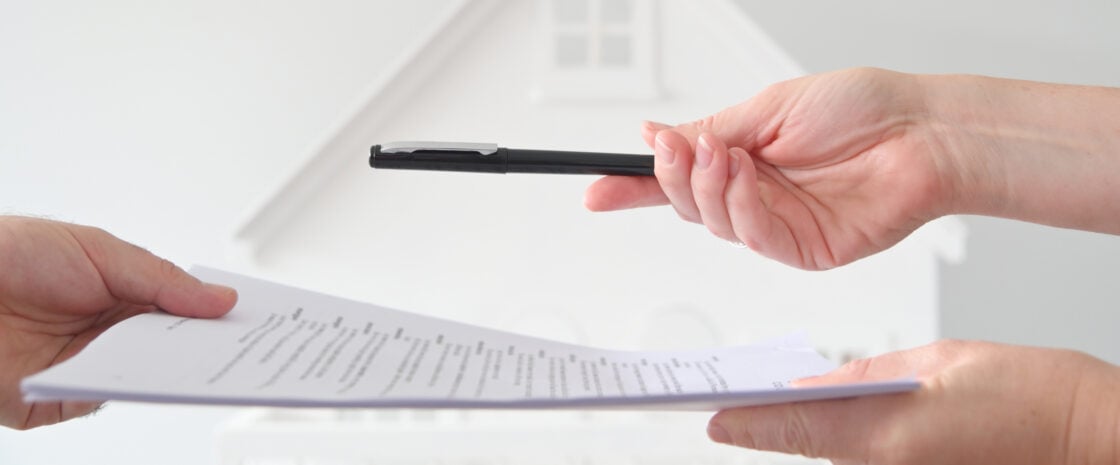A settlement statement, also known as a closing statement in Australia, is a document that details all payments and receipts involved in a property settlement, including any outstanding monies owed to the seller or buyer.
The buyer’s solicitor usually prepares the statement during the conveyancing process. It is provided to both parties ahead of settlement to ensure all details are accurate and in order, preventing any last-minute issues or unexpected costs.
The role of a settlement statement in property transactions
Settlement statements play a vital role in settlement as they provide a comprehensive breakdown of all expenses and credits exchanged between the buyer and seller. In 2024, these statements should also include an extensive digital record for added accuracy.
The seller and buyer should have both provided all the necessary information to complete the statement, leaving little room for discrepancies or misunderstandings on settlement day.
Reading your settlement statement
A settlement statement should be relatively easy to understand, but, unless you’re a property expert, it’s easy to get lost in all the details. Before buying a house or selling a property, you should review the statement thoroughly with your solicitor or settlement agent to catch mistakes and prevent surprises.
Key components of a settlement statement
A settlement statement typically contains most, if not all, of the following:
- Property details: the address, land size, valuations, and other relevant information.
- Sale price: the agreed-upon price for the property.
- Parties involved: full names and addresses of the buyer and seller.
- Loan information: the amount borrowed, the lender, the interest rate charged at the time, and other terms and conditions.
- Title costs: charges for title insurance, searches, and endorsements.
- Government taxes: charges for transfers or stamp duty.
- Government incentives: for example, the First Home Owner Grant.
- Settlement agent fees: charges for facilitating the closing process.
- Cost breakdown: a list of all costs, fees, and expenses paid by both buyer and seller.
- Escrow funds: any amounts held in escrow for tax or insurance premiums.
- Final summary: an overview of the amounts due on settlement day and how these funds are to be disbursed to complete the transaction.
🤓 Nerdy Tip
You can also browse online for examples of settlement statements to familiarise yourself with their structure and critical details. While layouts and formats may vary, the essential information should remain the same.
Understanding the statement of adjustment
A statement of adjustment outlines outstanding amounts due from either party on settlement day, ensuring both parties pay their fair share.
These expenses are typically periodic (weekly, monthly, or annually) and may include:
- Municipal and council rates
- Strata or owners’ corporation fees
- Water and sewerage rates
- Land tax
- Rental income and security bonds provided by the tenants (if it is an investment property with tenants)
- Any other outstanding credits or debts owed to the seller or buyer.
The seller is responsible for any income or expenses related to the property up to settlement day, after which the buyer assumes responsibility. If settlement day is delayed, adjustments can be recalculated to reflect updated costs and responsibilities.
It’s important to note that a statement of adjustment won’t usually include things such as utilities. The seller switches off things like electricity and gas and the buyer switches back on with their own provider when they move in.
» MORE: Costs to know when buying a house
Getting help with your settlement statement
The best way to understand the settlement statement is to review it with your solicitor or settlement agent. Sit down with them and go through each component — names, payout amounts, fees, and more — to confirm all details are correct.
Additionally, property settlements in Australia must comply with the legal requirements set forth in the Real Estate Settlement Procedures Act to ensure transparency and fairness during the process.
Don’t hesitate to ask questions if you’re unsure of any aspects. Your solicitor or agent can help spot any inconsistencies or unusual items. They should also be able to provide examples of settlement statements and notify you if any additional information is needed.
» MORE: Should you use a buyer’s agent?
Ensuring compliance on settlement day
Settlement statements and statements of adjustment are straightforward if both parties have made all payments on time. However, issues can arise if, for example, the seller misses a final strata payment or two. This is why it’s so important to keep your solicitor or settlement agent thoroughly involved all the way up to settlement day.
By taking the time to understand your settlement statement and working closely with professionals, you can limit any nasty surprises and have a stress-free settlement day.
DIVE EVEN DEEPER

Pre-Settlement Inspection: Your Final Check
When done properly, a final pre-settlement inspection should give you the confidence that you’re getting what you paid for and that no issues are likely to arise in the future.

What is a Mortgage Discharge Fee?
Mortgage discharge fees are a common part of paying off a mortgage loan in Australia. However, you might be able to reduce the final cost of obtaining that coveted property title.

10 Questions To Ask A Real Estate Agent When Selling A House
Selling a house can be tricky, so working with the right people is crucial. Here are 10 questions to ask a real estate agent to see if they fit.


